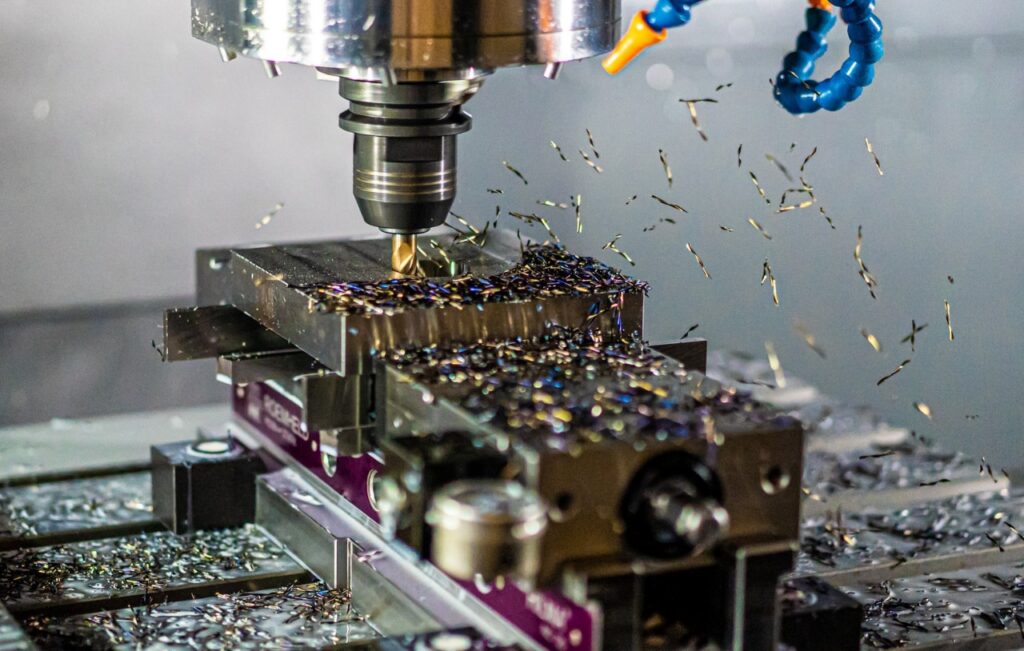SERVICE - ENGINEERING
We have more than 30 years of engineering expertise and we have expertise, manpower and skills to turn products of the imagination into real-world innovation across various fields of engineering
Inventing tools and technology for the betterment of humanity is a special task. Learn what the future holds for engineers and the world by exploring more
Mechanical Engineering
Technically, mechanical engineering is the application of principles and problem-solving practices through plan, design, organize, build, develop and test to maintain smooth operation and where this becomes the primary responsibility of mechanical engineers.
Mechanical and Manufacturing Engineering turns energy into power and motion. Mechanical Engineers design, create and improve systems and machinery that is used for domestic, public and industrial purposes.
This area covers the design and manufacture of a great variety of products such as domestic appliances, industrial machinery, ships, aircraft, engines, pumps, compressors and turbines or complex systems such as the air-conditioning and ventilation systems of buildings. The mechanical area interlinks closely with other areas of engineering and applies knowledge of materials, energy and structures.
Mechanical engineering is the study of motion, energy and force. The mechanical engineer seeks to control these elements by using a combination of material, human and economic resources to develop mechanical solutions that help satisfy the needs and wants of society
As mechanical engineering is one of the most diverse and versatile fields it touches basically on every aspect of modern life including industries such as Automotive, aerospace, biotechnology, computers, energy, and Manufacturing etc.
Chemical Engineering
Chemical Engineering is affiliated with the ways in which raw materials are transformed into useful and commercial end products. (Creating & manufacturing materials & products for everyday use) This could include designing equipment, systems & processes to refine raw materials and for mixing, compounding chemicals.
Our engineers utilize their knowledge of the physical world to manipulate the interactions of individual atoms and molecules. Their talents are generally employed in the research and development of new materials and are critical to numerous fields including nanotechnology, energy storage, and computing. Often working alongside other engineers in interdisciplinary teams to solve humanity’s greatest problems.
Chemical Engineers combine scientific knowledge of chemistry, physics and microbiology with an engineering mind frame and skill set. They ensure chemicals are properly produced, utilised and recycled. Some Chemical Engineers also work to create new chemical compositions and materials.

Production Engineering
Production engineering, also known as manufacturing engineering, is the design, development, implementation, operation, maintenance, and control of all processes in the manufacture of a product. Within this context a ‘product’ is defined as an item that has value added to it during the production process. Value is added by means of processes such as forming, machining, joining, and assembly
The engineers are responsible to improve the technical management, maintenance, and development of a production line. Also, the main goal is to achieve the production process to run
Electrical Engineering
Electrical engineers specialize in power supply and generation. They design, develop, test and supervise electrical equipment manufacturing. They have also been trained to handle responsibilities like wiring and lighting installations in buildings, automobiles and aircraft.
Electrical engineers are the ones who develop and test electronic devices & equipment for a wide range of product such as communication systems to electrical systems for automobiles and aircrafts.
As they deal with systems & devices which contain large number of electronic signals that transmit information through silicon chip technology. Electrical engineers’ role in current age is vitally important in everyday communication, defense, transportation, civil aviation, medical etc. to run a smooth lifestyle.
Building Services Engineering
We are responsible for the design, installation, operation and monitoring of the technical services in buildings. We work closely with other construction professionals such as architects, structural engineers and quantity surveyors.
Our specialist building teams work across the entirety of your building project, communicating with all stakeholders so that not only are your building services completed perfectly, but we’re enhancing other processes where possible
Our engineers influence the architectural design of building, in particular facades, in relation to energy efficiency and can integrate local energy production. Our engineers therefore play an important role in the design and operation of energy-efficient buildings (including green buildings, passive houses, and Plus-houses, and Zero-energy buildings).
Let us all work together to upgrade a space from an empty shell into a comfortable living and working environment that meets your requirements. It is our responsibility to ensure that the electrical, mechanical and telecom aspects of the project are met, and the building performs effectively and efficiently.
Hydraulics (Water) Engineering
Hydraulic engineering is the application of the principles of fluid mechanics to problems dealing with the collection, storage, control, transport, regulation, measurement, and use of water. Before beginning a hydraulic engineering project, one must figure out how much water is involved. The hydraulic engineer is concerned with the transport of sediment by the river, the interaction of the water with its alluvial boundary, and the occurrence of scour and deposition.[1] “The hydraulic engineer actually develops conceptual designs for the various features which interact with water such as spillways and outlet works for dams, culverts for highways, canals and related structures for irrigation projects, and cooling-water facilities for thermal power plant
Biomedical Engineering
This is the application of engineering principles and design concepts to medicine and biology for healthcare purposes to design and manufacture equipment such as artificial internal organs, replacement for body parts design machines to diagnose medical problems etc.
Biomedical engineers work with a combination of biology, medicine and engineering. They are trained to analyze and design solutions that will improve patient care. They are the professionals behind sophisticated medical equipment like MRIs and microscopic surgical machines.
Biomedical engineers are also responsible for research and development of medical innovations like artificial organs and prosthesis. Biomedical Engineers may be involved in designing artificial joints and limbs and assisting the surgical team in fitting these to the patient. They design and deliver technology to improve the quality of life of people with disabilities. For example, they may develop equipment to assist people who have difficulty walking, communicating or carrying out simple daily tasks
Biomedical engineers mostly work with doctors, therapists, and researchers to enhance/improve the functional capabilities if individuals with disabilities. Hench the primary responsibility would be to maintain safety to safeguard such individuals.

Agricultural Engineering
Our engineers are involved in the development of the world’s natural resources e.g., oil, water, land, rivers, and forests. Hence this branch of engineering is involved with the effective planting, harvesting, storage and processing of farm commodities. We are also involved in soil management, land development and the mechanization and automation of livestock farming.
We also provide Biological Engineering services. From aquaculture to land farming and forestry. We develop biofuels, plan animal environments, and find better food processing methods. Working together with Agricultural engineers, we manufacture improved farming machinery, navigation and control systems and assist in the development of enhanced crops working in collaboration with scientists who specialise in plant production through biological applications
Telecommunication Engineering
Telecommunications engineering is a discipline founded around the exchange of information across channels via wired or wireless means. It brings together all of the elements of electrical engineering, including computer engineering and system engineering, to create and improve telecommunication systems
The telecommunications sector is the main pillar of today’s mobile landscape, distributing voice, data, graphics, and video at ever-faster rates and in an ever-increasing variety of methods. Wireline telephone communication was once the industry’s primary service, but wireless communication and satellite distribution are gaining ground.
Telecommunications Engineering is an engineering discipline centered on electrical and computer engineering which seeks to support and enhance telecommunication systems
Engineers specialising in telecommunications are heavily needed in building and enhancing telecommunication systems, to combine all aspects of electrical engineering, including computer engineering and system engineering.

Environmental Engineering
Environmental engineers use science and engineering principles to protect and improve the environment. The quality of air, water, and soil is their primary focus. They seek solutions to water-borne diseases, wastewater management, and air pollution. They work to improve recycling, waste disposal, and industrial hygiene. They analyze soil and water samples. They understand the law as it applies to protecting the environment
Environmental Engineers form technologies and execute processes and systems as an environmental engineer to avoid and control a variety of environmental dangers, as well as to restore and reverse environmental harm. By disposing of trash, providing clean drinking water, managing environmental dangers, increasing recycling, and reducing soil, water, and air pollution, using scientific and engineering expertise to offer a healthy environment for the world’s population. Climate change, drought, population increase, urbanisation, pollution, deforestation, and the energy crises are all concerns that they address.
